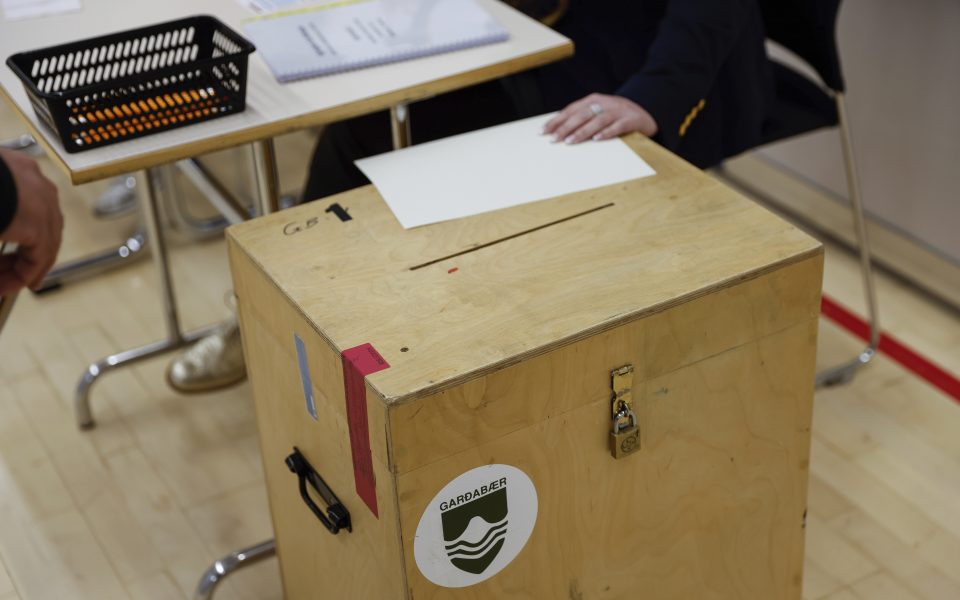Challenges to European democracies today

In European democracies today, existing institutional arrangements of controlling and influencing politics are more refined than ever in the history of contemporary democratic politics, but are very far from being perfect. Elections, referenda, open deliberation over bills of laws, and the exercise of individual and collective rights, such as freedom of expression and freedom of assembly, are but a few of the available institutional means through which citizens may control and influence politics. Yet citizens are often alienated from politics, while democratic deficits have emerged and have grown at the national and European Union levels of polity.
As the currently evolving research produced by DEMOS tends to show, the more limited citizens feel with regard to their capacities and opportunities to influence politics, the more they will tend to lend an ear toward populist political leaders and to echo populist political discourse. The DEMOS research project claims that political knowledge and skills are vital for the enhancement of democratic efficacy, namely the capacity of individual citizens to understand and influence politics. So are the social, rather than the individual, aspects of democratic efficacy. These are collective, if not institutionalized, channels of political participation through which citizens can acquire knowledge and skills. They refer to hands-on learning of democratic efficacy, rather than exclusively formal political education in schools or through mass media communication.
Indeed, the range of rights and institutions through which citizens and organizations can participate in politics seems broad. However, there is evidence and a pervasive feeling that citizens, especially the weakest or poorest, are not active and do not express themselves politically. And those who do express themselves are not heard, let alone listened to, by political elites.
Thus, over time political space for the emergence and rise of populists has opened up across Europe. Admittedly, over the last two years (2019-21) the electoral performance of populist parties has been mixed (e.g. electoral stability or decline of populist parties in the European Parliament elections of May 2019, the Greek national elections of July 2019, the French regional elections of June 2021). Yet, the challenge of populism’s rise has not eclipsed (e.g. the spectacular performance of Isabel Ayuso in the Madrid regional elections of May 2021).
It may be that the challenge of populism will not subside as long as citizens feel that, despite appearances, democratic efficacy escapes them in practice. While in the period between elections decision-making is not an inaccessible field for citizens, it is clear that it is not particularly accessible either. The repertoire of institutions and rights for democratic participation has long offered only ritual opportunities for citizens to participate. On the one hand democracy has not been limited to the process of electing officials through elections, between which the elected rule unhindered, but on the other it has not been enriched by the effective participation of citizens in decision-making either.
A typical populist response to the lack of effective participation is to hold increasingly frequent referendums. This option has been tried in Switzerland and less frequently in Italy, but it has not been replicated in most other European democracies. And for a reason. As has been said, by casting a vote in a referendum, citizens often answer questions other than the question posed in the referendum. In other words, with the exception of fundamental issues (declaration of national independence, abolition of monarchy etc), citizens, voting for or against in a referendum, accept or reject the government of the day, when they are not protesting against recent measures, regardless of the referendum. After all, referendums concern only the few public policy issues that can be expressed as dilemmas and not the majority of issues that are multifaceted.
The problem is not just the ineffective functioning of democracy. It is practical too, as the governments themselves have no idea what people are thinking. Thus, governments resort to their own, unpublished polls and to those published by public opinion companies. Those polls attract ephemeral public interest mainly in relation to voting preferences (for instance, which political party would win national elections if they were held next week). The media is not particularly interested in other findings, e.g. the acceptance or rejection of a new policy measure. Even if polls were more systematic, democracy would not achieve a higher quality level, nor would governments be wiser. Polls, as is well known, are snapshots of public opinion. They rarely involve alternative answers to public policy questions.
Another typical populist option is to hold open citizens’ assemblies, which were very popular with Greek, Spanish and other populists in the midst of the eurozone crisis in the early 2010s. Such assemblies did not solve the persistent problem of effective participation in decision-making. The assemblies, on the one hand, often took on an anti-parliamentary and/or anti-EU character, thus undermining the objective of enriching democracy and furthering European integration. On the other hand, such assemblies were often “adopted” by parties of the opposition, so that impenetrable walls were erected between the citizens and the governments which were mismanaging the economic crisis (and were naturally held responsible for the negative social effects of the crisis).
Moreover, the acceptance or rejection of a measure by public opinion poll is not a significant “input” into the political system. It would be more important to investigate the reasons for the acceptance or rejection of the measure, as well as proposals for its alteration, before it is voted. Across Europe, there are institutional opportunities for such investigations, with the participation of citizens. Examples are available at the supra-national (EU), the national and the sub-national level. In the EU steps have long been taken in this direction, such as the establishment and operation of the Economic and Social Committee (in 1957). On the other hand, the European Citizens’ Initiative (ECI), included in the Lisbon Treaty of 2009, has not really worked. The currently ongoing Conference for the Future of Europe emphasizes participation through citizens’ panels. At the national level, there are similar traditions of civic participation, while at the sub-national level, many countries (e.g. the UK, France, Denmark etc) have for a long time offered citizens the possibility to participate in and influence local government decisions.
Yet, it is not common for European citizens to identify democracy with citizens’ panels or committees of deliberation. The input of citizens is often limited to what political scientists call typical political participation (e.g. collecting signatures for a cause, casting a vote) and atypical political participation (e.g. strikes, street protests). It is difficult for political efficacy to increase only through such necessary and of course cherished, but somewhat worn-out, channels of democratic participation.
In short, typical populist arrangements, such as opinion polls and open citizens’ meetings, are not sufficient tools for democratic participation, let alone for enhancing democratic efficacy. They do not solve the problem that modern democracies leave many citizens indifferent, as they have no way of substantially influencing decision-making between elections. Complementary or alternative arrangements, such as citizens’ panels, focus groups organized by policy-makers, public deliberations and the like have been tried, but are not yet considered part and parcel of democratic life.
As the Covid-19 pandemic continues in waves in 2021, in some EU member-states, apart from the long-term phenomenon of political alienation, a muffled political disaffection has accumulated as a result of the long economic and health crisis (see results of the Standard Eurobarometer 94, published in April 2021). As long as effective institutions, other than elections, are not firmly established in European democracies, for the creative channeling of political disaffection, the rituals of democratic participation will continue with no benefit to democracy. If, however, institutional arrangements of participation cease to be hopeless rituals, then there are chances that citizens will embrace them and – along the way – will enhance their own democratic efficacy.
Dimitri A. Sotiropoulos is a professor of political science at the University of Athens and senior researcher at Hellenic Foundation for European and Foreign Policy (ELIAMEP). Alexia Mitsikostas is project manager at ELIAMEP.





